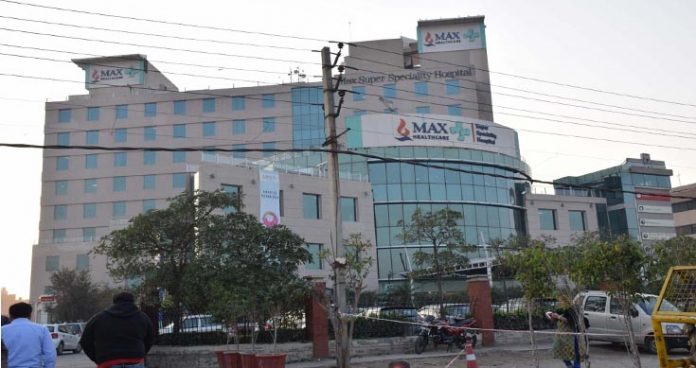A team of doctors at BLK-Max Super Speciality Hospital, here, has saved the life of a newborn boy by successfully treating him for a rare congenital heart condition.
The newborn boy had aortic stenosis (narrow heart valve), which was treated successfully using the balloon dilation technique by a minimally invasive procedure. While the procedure has been performed on infants before, the condition is rare in newborns since it is mainly age-related, making this one of the first cases in India done on a 2-day-old neonate, the doctors said.
Aortic stenosis is a term used to describe congenital heart defects that obstruct blood flow from the heart to the body. Significant aortic stenosis is relatively uncommon, affecting about six of every 1,000 babies born, occurring more often in boys.
ALSO READ: Delhi Airport sees growth in passenger traffic numbers
“The neonate was referred to us with the diagnosis of mild aortic valve stenosis in “shock” (poor respiratory effort with poor perfusion of the body with decreased urine output). He was gasping for breath with poor perfusion of the body. On examination, we found that his breathing was fast with signs of shock and decreased urine output,” said Subhash Chandra, Chairman, and HOD, Cardiology BLK-Max Super Speciality Hospital, in a statement.
“The echocardiogram showed deformed aortic valve with critical narrowing of the valve and very poor heart pumping. At once, we counseled the distressed family about the procedure and went ahead with it immediately,” he added.
In balloon dilation, cardiac catheterization is done by inserting a tube, also known as a catheter into a blood vessel in the groin, which is then guided towards the heart of the patient. The catheter contains a deflated balloon on its tip. Once it is placed in the narrow valve of the heart, the balloon is inflated to stretch the valve open.
Despite the procedure, there were still some issues that were impeding healthy recovery.
ALSO READ: Sputnik V not yet available in many private hospitals in Delhi-NCR
“Post the procedure, the baby was shifted to NICU for monitoring, however, there was still no pulse in his left leg. We decided to continue the patient on medicines and fortunately, after around three hours, his pulse returned. We extubated the baby the next day as he was showing stable vitals. He was discharged the very next day with a well-opened narrow valve and near-normal pumping of the heart,” Chandra said.
SOURCE-IANS







